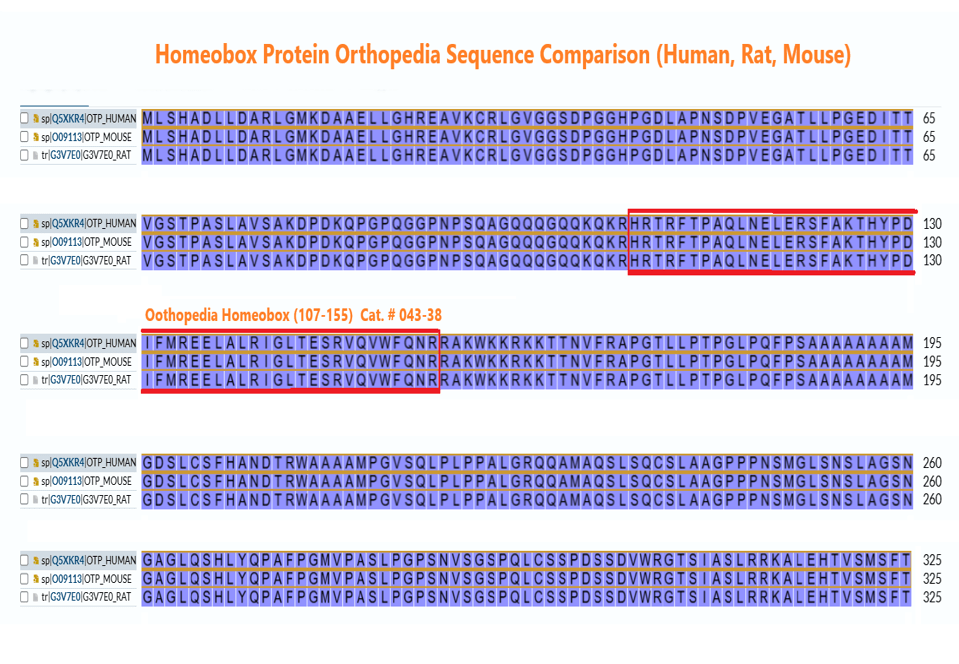OTP peptides shown as a link between anxiety and obesity
Abstract
Orthopedia regulates melanocortin 4 receptor transcription and energy homeostasis
Abstract: Disruption of hypothalamic melanocortin 4 receptors (MC4Rs) causes obesity in mice and humans. Here, we investigated the transcriptional regulation of MC4R in the hypothalamus. In mice, we show that the homeodomain transcription factor Orthopedia (OTP) is enriched in MC4R neurons in the paraventricular nucleus (PVN) of the hypothalamus and directly regulates Mc4r transcription. Deletion of Otp in PVN neurons during development or adulthood reduced Mc4r expression, causing increased food intake and obesity. In humans, four of the five carriers of rare predicted functional OTP variants in UK Biobank had obesity. To explore a causal role for human OTP variants, we generated mice with a loss-of-function OTP mutation identified in a child with severe obesity. Heterozygous knock-in mice exhibited hyperphagia and obesity, reversed by treatment with an MC4R agonist. Our findings demonstrate that OTP regulates mammalian energy homeostasis and enable the diagnosis and treatment of individuals with obesity due to OTP deficiency.
Disruption of the homeodomain transcription factor orthopedia homeobox (Otp) is associated with obesity and anxiety
Abstract
Objective: Genetic studies in obese rodents and humans can provide novel insights into the mechanisms involved in energy homeostasis.
Methods: In this study, we genetically mapped the chromosomal region underlying the development of severe obesity in a mouse line identified as part of a dominant N-ethyl-N-nitrosourea (ENU) mutagenesis screen. We characterized the metabolic and behavioral phenotype of obese mutant mice and examined changes in hypothalamic gene expression. In humans, we examined genetic data from people with severe early onset obesity.
Results: We identified an obese mouse heterozygous for a missense mutation (pR108W) in orthopedia homeobox (Otp), a homeodomain containing transcription factor required for the development of neuroendocrine cell lineages in the hypothalamus, a region of the brain important in the regulation of energy homeostasis. OtpR108W/+ mice exhibit increased food intake, weight gain, and anxiety when in novel environments or singly housed, phenotypes that may be partially explained by reduced hypothalamic expression of oxytocin and arginine vasopressin. R108W affects the highly conserved homeodomain, impairs DNA binding, and alters transcriptional activity in cells. We sequenced OTP in 2548 people with severe early-onset obesity and found a rare heterozygous loss of function variant in the homeodomain (Q153R) in a patient who also had features of attention deficit disorder.
Conclusions: OTP is involved in mammalian energy homeostasis and behavior and appears to be necessary for the development of hypothalamic neural circuits. Further studies will be needed to investigate the contribution of rare variants in OTP to human energy homeostasis.
Schematics

